Parents often grapple with their child’s sleep challenges, from bedtime resistance to irregular sleep cycles. For some, melatonin—a natural hormone that helps regulate the sleep-wake cycle—appears as a promising solution. But how safe is melatonin for children and teenagers? Let’s explore this topic in detail, addressing safety concerns, recommended dosages, and potential alternatives.
What is Melatonin and How Does it Work?
Melatonin is a hormone naturally produced by the pineal gland, primarily in response to darkness. It signals the body that it’s time to rest, helping to regulate the internal clock. For children and teenagers struggling with conditions like insomnia, delayed sleep phase disorder, or sleep issues related to ADHD, supplemental melatonin may be helpful under proper guidance.
Discover melatonin products tailored to your needs at Goodnight Natural.
Is Melatonin Safe for Younger Individuals?
Safety Guidelines for Children
Research suggests that melatonin is generally safe for short-term use in children when recommended by a healthcare professional. However, long-term effects remain under study, so it should only be used when necessary and with appropriate medical supervision.
Common Concerns
- Side Effects: Possible side effects include headaches, dizziness, or nausea. These are usually mild and resolve quickly.
- Overuse Risks: Accidental overdose can disrupt a child’s natural sleep cycle or cause grogginess.
- Interaction with Medication: Parents should discuss potential interactions with any medications their child is taking.
For safe, age-appropriate products, explore our Melatonin Gummies, ideal for younger users under proper guidance.
Recommended Dosages for Children and Teenagers
Melatonin dosages for younger individuals should always be conservative and supervised by a healthcare provider. Here are general guidelines:
- Toddlers (3-5 years): 0.5 mg to 1 mg
- Children (6-12 years): 1 mg to 3 mg
- Teenagers (13-18 years): 2 mg to 5 mg
It’s best to administer melatonin 30-60 minutes before bedtime to allow the body to prepare for sleep. Start with the lowest dose and only increase if recommended by a professional. Check out Fast-Release Melatonin Tablets for accurate dosing.
Alternatives to Melatonin for Better Sleep
While melatonin can be beneficial, some parents may prefer non-hormonal methods or supplements. Here are a few alternatives:
- Establish a Sleep Routine: A consistent bedtime and wake-up schedule can help regulate sleep patterns.
- Reduce Screen Time: Limit exposure to blue light from devices at least an hour before bed.
- Use Relaxation Techniques: Practices like meditation or breathing exercises can calm the mind.
- Magnesium Supplements: Magnesium supports relaxation and sleep quality.
- Valerian Root: A herbal remedy known to promote relaxation and ease mild sleep issues.
Browse our collection of Natural Sleep Supplements for effective alternatives.
Why Choose Goodnight Natural?
At Goodnight Natural, we offer a variety of premium melatonin products and natural sleep aids designed to support the entire family. Here’s why parents trust us:
- Safe and Reliable: Scientifically formulated products with clear dosage guidelines.
- Diverse Options: From Melatonin Gummies to Slow-Release Capsules, we’ve got solutions for all needs.
Shop High-Quality Sleep Solutions
Support your child’s healthy sleep with trusted melatonin products and natural remedies. Explore our top-rated items:
- Melatonin Gummies: A tasty, kid-friendly option.
- Fast-Release Tablets: Perfect for quick sleep onset.
- Slow-Release Capsules: Ideal for all-night support.

